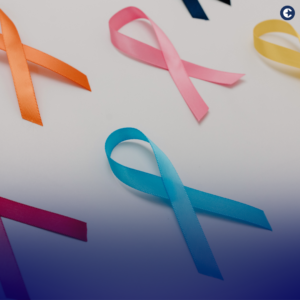In 2023, the FDA approved a new drug named Avzivi (bevacizumab-tnjn), offering a ray of hope for patients battling certain types of cancer. This breakthrough medication is designed to treat various forms of cancer, including colorectal, lung, and renal cell carcinoma, among others. Here, we break down the key points about Avzivi in a way that’s easy to understand.
What is Avzivi?

Avzivi is a biosimilar to the well-known cancer drug AVASTIN® (bevacizumab). A biosimilar is essentially a drug that is very similar to an already FDA-approved medication. It works in the same way as the original drug and is just as effective and safe.
How Does Avzivi Work?
Avzivi belongs to a class of drugs known as vascular endothelial growth factor (VEGF) inhibitors. VEGF plays a significant role in the process of angiogenesis, where new blood vessels form. Cancerous tumors need these new blood vessels to grow and spread. Avzivi works by inhibiting VEGF, thereby blocking the growth of new blood vessels to the tumor, which can slow down or stop the tumor’s growth.
What Cancers Does Avzivi Treat?
- Metastatic Colorectal Cancer: Avzivi is used in combination with chemotherapy for treating colorectal cancer that has spread to other parts of the body.
- Non-Small Cell Lung Cancer: For lung cancer that is non-squamous and advanced or has metastasized, Avzivi is combined with specific chemotherapy drugs.
- Recurrent Glioblastoma: This is an aggressive type of brain cancer for which Avzivi can be used.
- Metastatic Renal Cell Carcinoma: For advanced kidney cancer, Avzivi is used in conjunction with interferon alfa.
- Persistent, Recurrent, or Metastatic Cervical Cancer: It is also used to treat cervical cancer that is persistent, recurrent, or has spread to other parts of the body.
- Epithelial Ovarian, Fallopian Tube, or Primary Peritoneal Cancer: Avzivi treats these types of cancer, particularly in cases where the disease is resistant to platinum-based chemotherapy.

How is Avzivi Administered?
Avzivi is administered as an intravenous (IV) infusion. The dosage and frequency depend on the type of cancer being treated. It’s crucial for patients to follow their doctor’s instructions regarding treatment schedules.
Important Considerations and Side Effects
- Surgery and Wound Healing: Patients should withhold Avzivi for at least 28 days before and after elective surgery due to risks associated with wound healing.
- Potential Side Effects: Common side effects include hypertension, fatigue, bleeding, and proteinuria. It’s important for patients to report any unusual symptoms to their healthcare provider.
- Precautions: Avzivi may not be suitable for everyone, and its use requires careful consideration of the patient’s overall health and other medical conditions.
Conclusion
Avzivi represents a significant advancement in cancer treatment, offering a new option for patients with specific types of cancer. Its approval is a testament to the ongoing progress in oncology and the quest for more effective cancer therapies. As with any medication, it’s vital for patients to discuss the potential benefits and risks of Avzivi with their healthcare provider.
For more follow us on Instagram, Facebook, Twitter, & LinkedIn.



